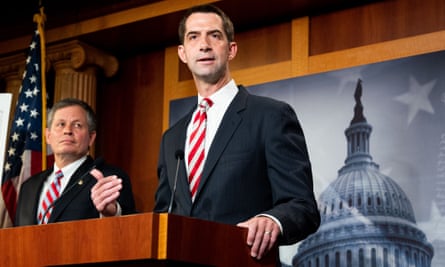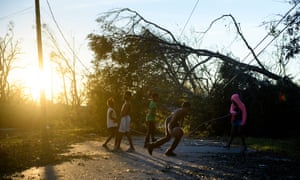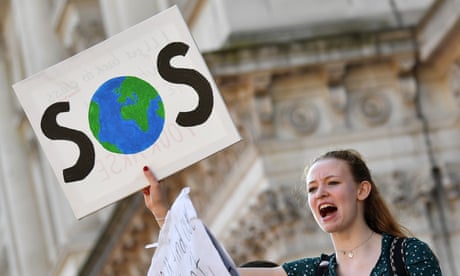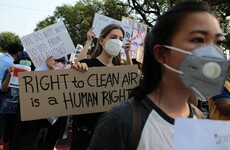Op-Ed: What ‘Law and Order’? It’s a pitiful slogan for failure
PAUL WALLIS
Portland - Insanity is too nice a word. The sheer irony of a “president” of the crime-ridden United States bleating about Law and Order is beyond farcical; it’s obscene.
Let’s check out the current poster child for this sudden interest in law and order. In Portland, a Wall of Moms, a Wall of Dads and a Wall of Vets has sprung up almost overnight. Even the city’s elected government doesn’t want Federal forces in Portland. Yet, there they are, achieving nothing, and infuriating the residents.
Portland is an interesting demographic. It’s real Middle America, a very white city (80%) which has been supporting Black Lives Matter with demonstrations and protests for some time.
This is the semi-idealized American city Trump claims to represent, in so many ways. He has successfully antagonized most of it by bringing in Federal agencies to “protect” it. The state’s governor, Kate Brown, has dismissed the intrusion into state affairs as an election stunt. So has most of the US media.
o great surprises here; Portland wasn’t having a particularly hard time with demonstrations. They, like most responsible governments, were more worried about the pandemic. (Oregon has a surprisingly good track record in pandemic management.) Now they have a virtual takeover of local law enforcement, coupled with many tales of people being dragged off into unmarked vehicles, unidentified Federal agents (probably illegal in itself; see the Constitution for indicators) and similar bizarre incidents in the name of Law and Order.
Law and Order, you say, bozo?
This is far too big a problem to go into any sufficient level of detail. Crime is America’s other plague, and it’s been around a lot longer than the pandemic. We’ll just have to deal with the basics of law and order as general principles and show why even the principles don’t work anymore.
For the country with the highest ratio of citizens incarcerated per population in the world, “Law and Order” isn’t exactly a perceptive slogan. It’s not even a plausible myth. In terms of crime, it’s a joke at best. If you check out crime rates in the United States, you’ll see a dog’s breakfast of issues involving much human misery, and that’s been the story since the 1980s. None of these national issues has rated a mention by this administration in the last 4 years. Now it’s an issue, but not the crime; it’s those pesky people exercising their First Amendment rights. Some democracy you have there.
The rhetoric is even more absurd. Protestors are “terrorists, leftists, and anarchists”, but the huge, ugly horror story of 40 years of massive national crime statistics haven’t even qualified for discussion on any level or to any degree of depth. Check out the Gun Violence.com archive for the 2020 fun fair of Law and Order in practice nationwide.
Law and Order is a standard political cliché for any occasion. It means nothing in practice. It’s a catch-all, covering a vast range of complex issues which soon fade away into the haze of other insoluble problems. Street crime, for example, has long been in the too-hard category. The gang MS13 alone makes more news than most non-political issues in the US, but it’s protestors who are the target of this outbreak of infantile national security? Great set of priorities.
White collar crime in the US is another no-go zone for this administration. Never mind the political spectrum, this crime wave is an institution in itself. The sub primes that caused the 2008 crash are barely the tip of an ice cube, let alone the gigantic glacier of white collar crime. Law and order? There rarely if ever has been any at all. There is effectively no such thing in corporate America, beyond the odd vague swipe at outstanding cases. Again, it’s not an issue in 2020.
CAN America believe in Law and Order?
Short answer - No. There’s been very little reason to believe in it for so long. NCIS or the other mindless cop shows notwithstanding, the good guys are marginalized in practice. “Closeup/cheapskate innuendo/plodding story line/closeup” doesn’t have a lot to do with actual law enforcement.
Then, strangely, there’s the police. Remember them? Maybe not. Leave out the thousands of videos of police abuse for a moment, and focus on the other guys trying to do their actual jobs. Cases of PTSD among officers aren’t exactly unknown. How are people stressed to that level supposed to do their jobs while politicians and corruption run practically everything? Laws there may be, but this raffle of a law enforcement environment can’t be called order. Is that a re-election issue? No. It’s not even a subject for mention.
Talking Law and Order in this totally dysfunctional environment is like putting icing sugar on a corpse. It might look a bit better, but it’s still dead. The same principle applies to the Law and Order mantra coming from the White House. If it’s anything like any other statement coming from Trump, it’ll never happen.
This opinion article was written by an independent writer. The opinions and views expressed herein are those of the author and are not necessarily intended to reflect those of DigitalJournal.com
Law and Order, you say, bozo?
This is far too big a problem to go into any sufficient level of detail. Crime is America’s other plague, and it’s been around a lot longer than the pandemic. We’ll just have to deal with the basics of law and order as general principles and show why even the principles don’t work anymore.
For the country with the highest ratio of citizens incarcerated per population in the world, “Law and Order” isn’t exactly a perceptive slogan. It’s not even a plausible myth. In terms of crime, it’s a joke at best. If you check out crime rates in the United States, you’ll see a dog’s breakfast of issues involving much human misery, and that’s been the story since the 1980s. None of these national issues has rated a mention by this administration in the last 4 years. Now it’s an issue, but not the crime; it’s those pesky people exercising their First Amendment rights. Some democracy you have there.
The rhetoric is even more absurd. Protestors are “terrorists, leftists, and anarchists”, but the huge, ugly horror story of 40 years of massive national crime statistics haven’t even qualified for discussion on any level or to any degree of depth. Check out the Gun Violence.com archive for the 2020 fun fair of Law and Order in practice nationwide.
Law and Order is a standard political cliché for any occasion. It means nothing in practice. It’s a catch-all, covering a vast range of complex issues which soon fade away into the haze of other insoluble problems. Street crime, for example, has long been in the too-hard category. The gang MS13 alone makes more news than most non-political issues in the US, but it’s protestors who are the target of this outbreak of infantile national security? Great set of priorities.
White collar crime in the US is another no-go zone for this administration. Never mind the political spectrum, this crime wave is an institution in itself. The sub primes that caused the 2008 crash are barely the tip of an ice cube, let alone the gigantic glacier of white collar crime. Law and order? There rarely if ever has been any at all. There is effectively no such thing in corporate America, beyond the odd vague swipe at outstanding cases. Again, it’s not an issue in 2020.
CAN America believe in Law and Order?
Short answer - No. There’s been very little reason to believe in it for so long. NCIS or the other mindless cop shows notwithstanding, the good guys are marginalized in practice. “Closeup/cheapskate innuendo/plodding story line/closeup” doesn’t have a lot to do with actual law enforcement.
Then, strangely, there’s the police. Remember them? Maybe not. Leave out the thousands of videos of police abuse for a moment, and focus on the other guys trying to do their actual jobs. Cases of PTSD among officers aren’t exactly unknown. How are people stressed to that level supposed to do their jobs while politicians and corruption run practically everything? Laws there may be, but this raffle of a law enforcement environment can’t be called order. Is that a re-election issue? No. It’s not even a subject for mention.
Talking Law and Order in this totally dysfunctional environment is like putting icing sugar on a corpse. It might look a bit better, but it’s still dead. The same principle applies to the Law and Order mantra coming from the White House. If it’s anything like any other statement coming from Trump, it’ll never happen.
This opinion article was written by an independent writer. The opinions and views expressed herein are those of the author and are not necessarily intended to reflect those of DigitalJournal.com
















